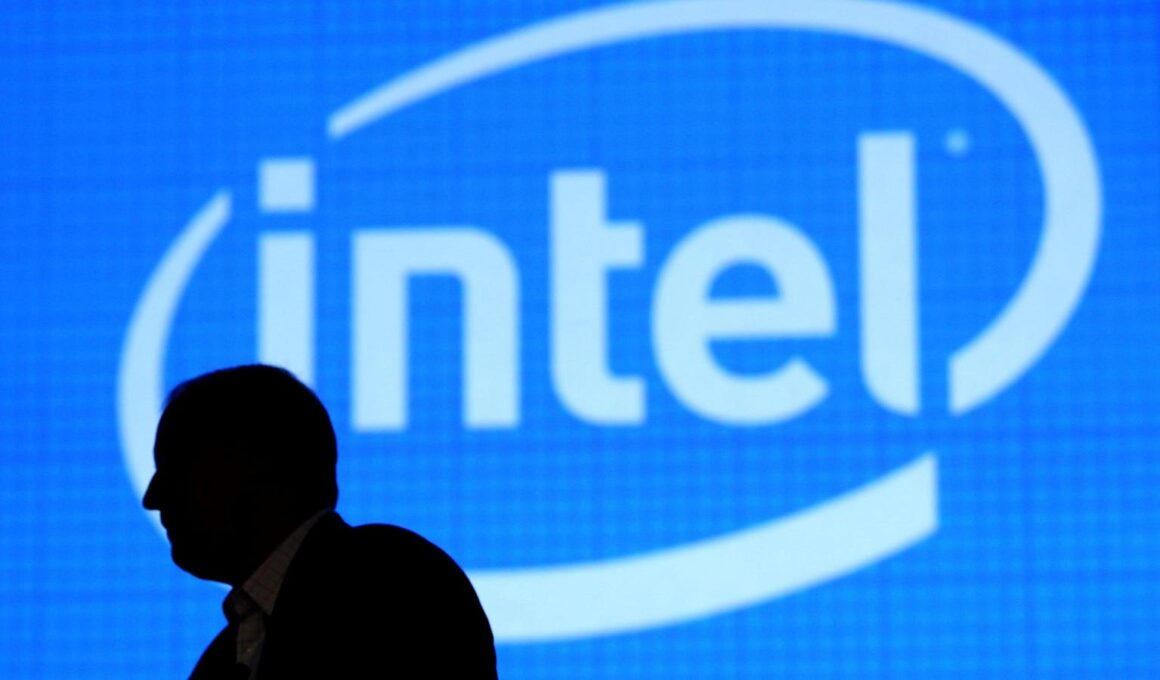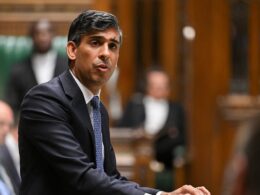Topline
Intel is on track to erase more than $30 billion in market value in one of its worst days since going public decades ago, part of a broader selloff as tech titans release lackluster earnings reports amid growing investor skepticism as to whether big tech’s hefty investments in AI can pay off.
Intel shares plummeted on Friday.
Key Facts
Intel shares fell nearly 30% on Friday morning after the company announced plans to slash its workforce and halt its dividend, as well as issuing grim revenue forecasts for the months ahead.
The deep cuts, brutal earnings report and ensuing stock firesale has put Intel on track for what could become its worst day since going public in 1980 and its shares have only fallen more than 19% a handful of times in that period.
If sustained, the plunge means Intel is poised to erase around $35 billion in market value on Friday alone, shrinking from around $124 billion to $89 billion.
Intel had a market value of around $500 billion at its peak in the middle of 2000, after which the firm nosedived as part of the dot-com bust and has not come close to reaching the mark since.
If losses hold until the bell, Intel will be worth just a fraction of the market value of semiconductor rivals it has fought with and bested for decades before falling behind in recent years.
As it stands today, Intel would be worth less than 5% of chipmaking behemoth Nvidia and less than half—around 40%—of Advanced Micro Devices (AMD), which have market values of around $2.5 trillion and $216 billion, respectively.
Is This The End For Intel?
For decades, Intel has been one of the most important companies in the United States and for a long time it was the country’s biggest and most valuable chip company. Intel was a pioneer in one of the most consequential technologies in the history of humanity: microprocessors. The technology powers computers and was one of the keys to igniting the digital revolution. While Intel remains an important player in the field and its chips still power countless devices, its failure to anticipate the mobile chip boom that accompanied the release of the iPhone and its inability to keep up during the recent AI race means the company has fallen behind rivals it had trounced for years like Nvidia and AMD. Its performance has been almost the complete antithesis of market leader Nvidia this year, falling to become one of the worst performers of the S&P 500 compared to Nvidia’s position as one of the best. Even before Friday’s crash, this series of failures has increasingly led to questions over whether Intel can possibly recover and stay relevant in today’s market. Analysts have described Friday’s nosedive as a “spiral” or a potentially “existential” moment for the firm, though one that Intel is likely to survive in some shape or form. However, analysts said it is largely unclear how Intel might look in the future and whether its deep cuts will help it return as a revitalized competitor in the semiconductor space.
Tangent
Intel’s downward spiral dragged down chip and tech stocks Friday, compounding selloffs amid growing over the value of heavy AI investments and dismal earnings reports from giants like Amazon and Microsoft. The chip selloff triggered heavy losses among chip companies around the world, including South Korea’s Samsung and SK Hynix (which suffered its worst daily drop in more than a decade), Japan’s Tokyo Electron, Taiwan’s TMSC, the Netherlands’ ASML and Britain’s Arm Holdings. U.S. firms also fell, with Nvidia plunging nearly 6% shortly after markets opened Friday, having already closed nearly 7% down Thursday. Other American firms like Broadcom, KLA Corp, Qualcomm, Lam Research, Applied Materials and Marvell also dipped between 2% and 4% during trading on Friday morning.
Get Forbes Breaking News Text Alerts: We’re launching text message alerts so you’ll always know the biggest stories shaping the day’s headlines. Text “Alerts” to (201) 335-0739 or sign up here.
Further Reading









